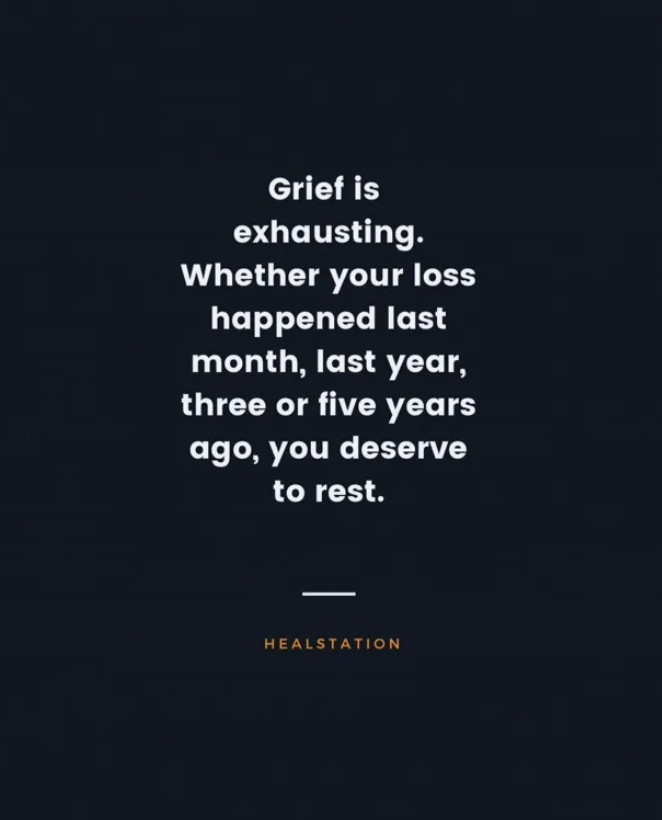By Taylor Mann, Mental Health Counseling Intern
August 30th is National Grief Awareness Day! Contrary to societal beliefs, grief does not have to correlate with death. Grief is a form of loss.
People do not experience grief in alinear fashion and there is no “one sizes fits all” process when it comes to mourning a loss. If you google “how long does it take to get through grief,” you may come across answers, such as a few weeks, a few months, or a few years. But, from both personal and professional experience, there is no specific amount of time to grieve. Individuals may tell themselves, “I’ll give myself x amount of time to grieve”— but giving one’s self a deadline for being “done” with grief is confining and probably not a realistic expectation. Grief is a process, not a destination. Our losses don’t go away, but we can learn to adapt, manage our feelings, and make new meaning in our lives.
So how do we overcome grief? Grief is crippling at times and can put someone in a very dark and painful place. It may be surprising, but one effective strategy for dealing with loss is to become friends with your grief and honor your grief. Dr. Alan Wolfelt expands on this idea by stating the following:
“You will learn over time that the pain of your grief will keep trying to get your attention until you have the courage to gently, and in small doses, open to its presence. The alternative—denying or suppressing your pain—is in fact more painful. I have learned that the pain that surrounds the closed heart of grief is the pain of living against yourself, the pain of denying how the loss changes you, the pain of feeling alone and isolated—unable to openly mourn, unable to love and be loved by those around you. Instead of becoming dead while you are alive, you can choose to allow yourself to remain open to the pain, which, in large part, honors the love you feel for the person who has died.”
You can choose to set an intention to heal. This can be difficult in itself for those who do not want to heal and use pain as a reminder of their loss. I see you and I hear you, nonetheless you are worthy and deserve to find peace. By setting an intention to heal, you are transitioning from a “passive witness” to an “active participant”— or in other words, you are practicing purposeful self-care in all areas of your life. For example, make sure you’re getting enough sleep, food, and external support (e.g. friends, grief support group, or individual therapy).
If you have experienced grief, then ask yourself: Are you truly allowing yourself to make friends with your grief or have you shoved it down into the darkest depths of your soul?
If you need help moving through the grieving process, Counseling Connect can help. To book an appointment, call 540-315-1445 or schedule a session online at https://counselingconnect.clientsecure.me/. We look forward to connecting with you!

